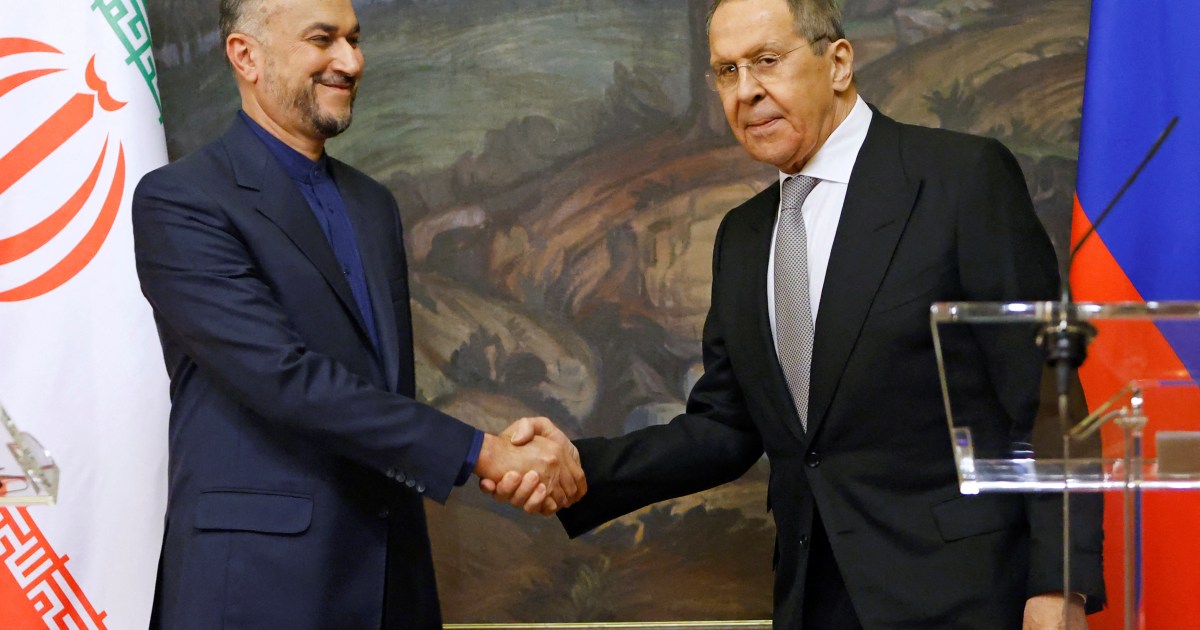Shoshana Breen, senior director of the Jewish Policy Center in Washington, says that Russia's "horrific" war on Ukraine is extending abroad to include not only the two sides of the conflict, but other countries and policies in the Middle East.
This was mentioned in an article by Breen published by the American magazine Newsweek, in which she discussed the meetings of the Iranian nuclear agreement to explain how the Ukraine war, as well as the Syrian war, and the developments in southern Lebanon between Israel, Iran and Hezbollah, dealt with it.
Iranian nuclear
On the Iran nuclear deal meetings, the writer said that the US administration has made no secret of the fact that it covets a deal and is ready to provide benefits to Iran before signing, including the abolition of sanctions imposed on its “civilian” nuclear program.
Russia was a major player in the negotiations;
Even before the Ukraine war, Washington and Moscow were coordinating their positions.
As a historical rival to Iran, Russia was unwilling for Tehran to produce nuclear weapons, so it was willing to pressure Iran in America's favor at some points.
Syrian war
She added that Russia's participation in the Syrian war, among other things, was related to the war against Sunni fighters with the help of Iranian Shiite militias.
The agreement with Iran in Syria was logical from the Russian point of view, as was the agreement with the United States in Vienna.
Until Putin began his war against Ukraine, his interest in helping US President Joe Biden to win at any level disappeared.
Moreover, Putin relies on Israel, the only country that Moscow and Kiev accept together as a negotiating channel.
Israel, Iran and Syria
Therefore, while Israeli Prime Minister Naftali Bennett's primary goal, in the role of mediator between Moscow and Kiev, was to end the atrocities of Russian conventional warfare, he certainly raised issues of Iran, nuclear weapons, and Russia's position in Vienna, and that Russia's tough stance in Vienna would help Israel.
And here we are witnessing Russia's hardening in Vienna, which caused the Iranian nuclear talks to stop.
This Moscow policy has made Iranians more angry than usual with America.
The Iranians were assuming that Biden would agree to any deal with them, and many parties expected that, but he did not.
Iran launched missiles at Erbil, Iraq, as if it wanted to prove that it did not lack methods of revenge against America, meaning that Iran wanted America to sign an agreement, while at the same time bombing American targets.
Syria, southern Lebanon and Israel
Brin also said that Iran is currently taking advantage of the world's preoccupation with Ukraine, to increase its military activity in southern Syria, near the Israeli border, and continues to ship weapons to both Syria and Lebanon, violating one of Israel's red lines.
Israel continues to bomb relevant targets, as this week it killed two Iranian Revolutionary Guards officers involved in smuggling precision missiles through Damascus airport.
She said that Israel's ability to defend its northern border from Iran and Hezbollah depends to some extent on Russia's approval of Israeli operations and the lack of ongoing conflict, so changing Russia's attitude toward Israel, regarding the Ukraine war or anything else, could change Israel's operational plans .
Russia's position is not just a diplomatic one.
With an air base and a naval base in Syria, Moscow could try to force a change of policy, though it admittedly does not seem likely now.

